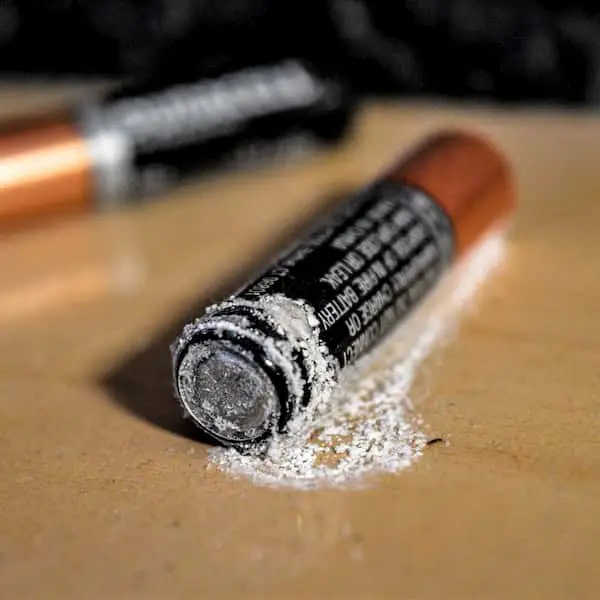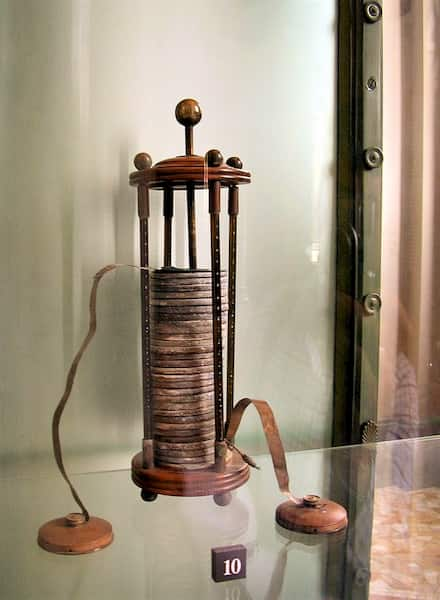If you put your batteries in the fridge, will they last longer?
The old myth about batteries’ supposedly longer life if you put them in the refrigerator.
I still remember when I was very small and my Aunt told me to go get the milk from the fridge. I was around 4 or 5 and it was a great responsibility to go get stuff and bring it back. So I tumbled away, into the kitchen, and open the refrigerator door. Totally flabbergasted, I watched the long lines of batteries inside the fridge door, between the milk, the fruit juice, and bottles of various nature. All kinds of batteries, big ones, small ones, round, and squared, all side by side standing and lying like frozen soldiers in a landscape model. It was awesome, at least for a 5-year-old.
My Aunt as well as many of her generation was convinced that putting the batteries in the fridge, was a way to extend their life. Even the freezer was a safe bet for many of the older generation. The cold environment slows down the self-discharge and keeps the batteries in better health until the day you take them out and fry them… or use them in some electric tool or a radio or something.
This myth was generated a long time ago and many still are absolutely convinced that keeping the batteries in the fridge, makes them last longer.
But is it true?
The science behind the batteries’ life span.

Batteries release energy through a chemical reaction between two or more compounds stored inside the closed shell. Electrons flow out of the one terminal, through whatever device they’re powering, and back into the other terminal. When a battery is plugged in, this flow depends on the workload. The more energy the lamp or the RC-car uses, the faster the batteries run out of energy. But when batteries are not plugged in they still leak a little from one terminal to the other. So, after a long time, they will discharge even if they are never used. This is called the self-discharge, and it’s actually higher at higher temperatures and lower at lower temperatures.
So: Yes, batteries keep longer if they’re in a cold environment.
But, that’s not the whole truth.
Before the modern Alkaline batteries entered our homes, we used zinc-carbon batteries for our everyday needs. Until a few decades ago, alkaline batteries were regarded as rather exclusive. A famous manufacturer, with a drummer-bunny as their trademark had almost monopolistic control of the market. And their batteries were looked upon as much more effective than all the others. Normal batteries were Zinc–carbon batteries, and these had a much shorter life. The benefit of putting them in the fridge was noticeable, just like my Aunt and everybody in here generation new.

While the old batteries had a significantly longer life span when stored in the fridge or even the freezer, modern batteries gain very little. Science is moving forward. Today we also have many different types of batteries, from huge starter batteries for trucks, to tiny lithium cells for computers and cell phones. And to complicate the argument. they all have different self-discharge rates.
Here’s a list of how fast batteries generally self-discharge:
- Alkaline: Modern alkaline batteries are very stable. They lose a few percent of their charge per year.
- Zinc-carbon: As said before, these batteries have a much shorter life. They, lose about 20% a year in self-discharge.
- Lithium-ion (rechargeable): These are found in laptops, mobile phones, and high-end portable power tools. They discharge a little faster around 5% per month.
- Nickel-Cadmium (NiCa)(rechargeable): These were the ancestors of Lithium-ion batteries. These lose around 10% per month.
- Nickel Metal Hydride (NiMH) (rechargeable): These replaced much of the Nickel-Cadmium batteries as they have a better capacity. The early generation of these had a terrible self-discharge rate… Around 30% per month at room temperature. Later versions, Low self-discharge (LSD) NiMH batteries, have a much longer life, on par with the disposable alkaline batteries.
But it’s not fair to compare a rechargeable computer battery to a disposable flashlight battery. Rechargeable batteries don’t rely so much on long life and low self-discharge, since they can be recharged at any time.
They can be dangerous too.
Batteries can explode. Yes, they can and it’s a hazard risk that should be reckoned with. A normal lead-acid starter battery for your car produces hydrogen gas when charged… And hydrogen is highly explosive.
The Lithium-ion battery in your cell phone can also explode for various reasons. If the charger is malfunctioning, if it’s too strong for the device, if there are poor ventilation and high temperature in the room, or if not charging at all but for some other reason gets too hot.
- Don’t talk or use the phone in any other way when it’s charging.
- Don’t charge it on your bedroom table when you sleep.
- Don’t leave it in your car, or in any other very hot place.
The complicated reality of the batteries’ life.
Putting batteries in the fridge is still only possible with a small number of types of batteries, namely the small AA, AAA D, and Cs. Nobody puts a lead-acid car battery in the fridge, and nobody dismantles the Li-ion battery of the cell phone just to put it in the refrigerator overnight.
As said before, batteries inside computers and other electrical devices don’t have to be very long-life. They get charged every day anyway, or every second or third. For those batteries, it’s much more important to have a long life regarding the total recharging cycles it can take without losing capacity.
And some batteries can also be damaged if the temperature is too low, especially if they are not fully charged.
Some batteries, like the Li-ion, have a much higher self-drainage when they are fully charged. Those should be stored at about half-charge… And, they last longer in the fridge.
And batteries can be damaged by humidity. In some refrigerators, the humidity is high, especially in summer…
But now it’s getting too complicated.
And that’s why we can’t say that the batteries’ life increases if you keep them cold. Generally speaking, it is true, but there are so many different factors to take into consideration, that the cold completely loses its importance. The battery manufacturers suggest dry and cool normal room temperature for storing batteries. Here are some more tips:
- Alkaline and non-rechargeable lithium batteries can be stored for 10 years with moderate loss capacity.
- Remove the battery from the equipment and store it in a dry and cool place.
- Avoid freezing. Batteries suffer damage more easily if they are kept in freezing temperatures while discharged.
- Nickel-based batteries can be stored completely discharged.
- Lithium-ion must be stored in a charged state. If it’s left completely discharged for more than a week it has to be disposed of.
Yes, batteries lose less power when stored at a low temperature. But it’s very little, and it’s so complicated to give general advice that you probably do best to follow the guidelines of the manufacturer… Detach from the electronic device, and store in a cool and dry place.
sources
- Lifehacker
- Green Batteries
- How to Geek
- Battery guy
- USA today
- Battery University
- Self discharge of batteries
- Digitized
Batteries in the fridge Batteries in the fridge Batteries in the fridge Batteries in the fridge
